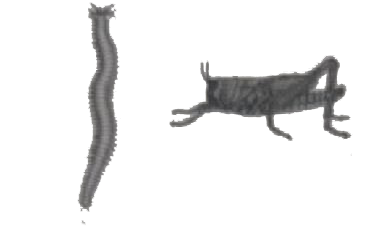An organ is a
group of two or more kinds of tissues united structurally and coordinated together to perform an activity
group of similar cells that function together to perform an activity
multilayered sheet of cells
solid structure formed of embryonic mesoderm
The correct Answer is:A
Step-by-Step Solution:
1. Definition of an Organ: An organ is defined as a group of two or more different types of tissues that are united and coordinated to perform a specific activity or function.
2. Understanding Tissues: Tissues are formed when similar cells group together. These tissues can be of various types, such as muscular tissue, nervous tissue, epithelial tissue, etc.
3. Hierarchy of Biological Organization: The biological organization starts from the smallest unit, which is the cell. Cells come together to form tissues, and when different types of tissues work together, they form an organ.
4. Examples of Organs: Common examples of organs include the heart, lungs, kidneys, and liver. Each of these organs is made up of multiple types of tissues working together to perform their specific functions.
5. Organ Systems: When multiple organs work together to perform a broader function, they form an organ system, such as the circulatory system or the excretory system.
6. Incorrect Options:
- Option 2 describes a group of similar cells, which refers to tissues, not organs.
- Option 3 describes a multi-layered sheet of cells, which does not define an organ.
- Option 4 mentions solid structures formed from embryonic mesoderm, which is not a comprehensive definition of an organ.
7. Conclusion: The correct definition of an organ is that it is a group of two or more kinds of tissues that are united and coordinated to perform a specific activity. Therefore, the correct answer is option 1.
---
- Option 2 describes a group of similar cells, which refers to tissues, not organs.
- Option 3 describes a multi-layered sheet of cells, which does not define an organ.
- Option 4 mentions solid structures formed from embryonic mesoderm, which is not a comprehensive definition of an organ.
Topper's Solved these Questions
Similar Questions
Excretory organs help the body in getting rid of waste products: Which of the following organs is not an excretory organ?
View SolutionAn organism reduces survival, growth and reproduction of other organism, reduces its population density and make it physically weak, such organism are called _______.
View Solution
Knowledge Check
- Question 1 - Select One
An organism made up of a single cell is known as a unicellular organism. Which of the following organisms is not unicellular?
ABacteriumBMushroomCParameciumDDinoflagellate - Question 2 - Select One
Organs for excretion in given organisms are:
 AFlame cells and nephridiaBNephridia and Malpighian tubulesCNephridia and MetanephridiaDFlame cells and Malpighian tubules
AFlame cells and nephridiaBNephridia and Malpighian tubulesCNephridia and MetanephridiaDFlame cells and Malpighian tubules - Question 3 - Select One
Which of the following organs is not an excretory organ?
AUrethraBKidneysCLungsDHeart
Homologous organs and Analogous organs.
View SolutionConsumers are organisms that are dependent on other organisms for food. Which of the following organisms is not a consumer?
View SolutionSome organisms are composed of a single cell and are called (A)____ organisms while other organisms are composed of many cells are called (B)____ organisms.
View SolutionWhich are the different organs in body of organisms ?
View SolutionWhich are the different organs in body of organisms?
View Solution

